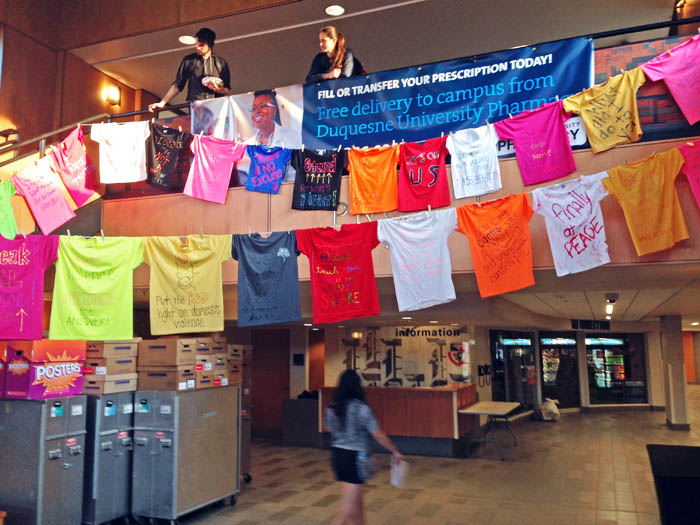By Duke Staff
If there’s anything students can learn from this past weekend’s rape trial in Steubenville, Ohio, it’s that the internet and social media are no longer a safe place to store your dirty laundry.
This weekend, Trent Mays, 17, and Ma’lik Richmond, 16, both Steubenville High School football players, were found delinquent of raping a 16-year-old student, the juvenile court equivalent of being found guilty. Both boys were sentenced to at least one year in juvenile jail and could remain there until they are 21-years-old. Both are required to register as juvenile sex offenders. Mays was also found guilty of illegal use of a minor in nudity-oriented material, according to news reports.
While the case has been in the media since last summer and this past weekend in the courtroom, a major focal point has been the teens’ use of social media to document the alcohol-fueled party and the assault of the victim. There were YouTube videos, Instagram photos and texts that chronicled the events of the night.
The individuals who were responsible for posting this information online deleted it, attempting to hide all evidence that anything happened. Unfortunately for them, once something is out on the Web, it’s there forever.
It’s a win for the judicial system, but a huge
wake up call for those of us who use the Internet like
our own private diary.
Prosecutors were able to dig up the evidence to present in court; evidence that ultimately pointed to Mays and Richmond’s guilt. It’s a win for the judicial system, but a huge wake up call for those of us who use the Internet like our own private diary.
We, 18-years-old and over, are the last generation to have a memory of life before the internet. We were warned constantly about the dangers of posting personal information for the whole world to see. For some of us, our internet time during our preteen and teen years was heavily monitored and regulated by Mom and Dad.
What’s evident by this case is that today’s teens don’t have the same cautious mindset. Many are so used to the internet that it is second nature for them to use and abuse the social media.
Posting improper photos and detailing illegal acts may seem cool among friends, but the first time an employer stumbles upon the illicit acts of your youth, you may not be singing the same joyful tune. Or worse, what if someone gets hurt during these wild escapades and you have a hand in it?
The Internet is not an alternate universe. There is no separation between real life and Internet life. What is posted online can have real effects on life outside the computer.




